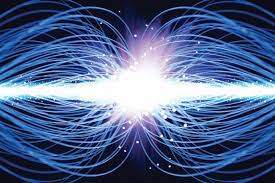5G on the Dark Side
Dark fiber is a term used to describe fiber optic cables that are laid, but not yet in use for data transmission. These cables are often laid in anticipation of future demand for increased capacity and bandwidth. In the context of 5G, dark fiber is becoming increasingly important as the technology continues to roll out and expand across the globe.
The main reason dark fiber is important for 5G is its ability to support the high speeds and low latencies required by the technology. 5G networks operate at much higher frequencies than previous generations of mobile networks, which allows for faster speeds and lower latencies. However, these higher frequencies also result in reduced range and increased interference, requiring a denser network of small cells and antennas to deliver reliable coverage.
To support this denser network, 5G requires a significant increase in capacity and bandwidth, which can only be achieved through the use of fiber optic cables. Traditional copper wire cannot provide the necessary speeds and capacity to support 5G. Dark fiber, on the other hand, has the potential to deliver unlimited bandwidth, making it an ideal choice for 5G networks.
Another advantage of dark fiber is its reliability and durability. Unlike copper wire, fiber optic cables are not affected by electromagnetic interference, making them more reliable for data transmission. Additionally, fiber optic cables have a much longer lifespan than copper wire, making them a more cost-effective long-term solution.
In addition to the technical benefits of dark fiber, there are also economic benefits to consider. Dark fiber can be leased by multiple parties, allowing for increased competition and potentially lower costs for consumers. This is particularly important for 5G, as the technology is expected to drive significant growth and innovation in a variety of industries, including the internet of things (IoT), autonomous vehicles, and virtual reality.
Overall, the importance of dark fiber in 5G cannot be overstated. As technology continues to expand and evolve, it will be essential to have a reliable and high-capacity infrastructure in place to support it. Dark fiber is the ideal choice for meeting these demands, providing unlimited bandwidth, reliability, and durability. As such, it will be a key component in the success of 5G networks and the technologies they enable.

